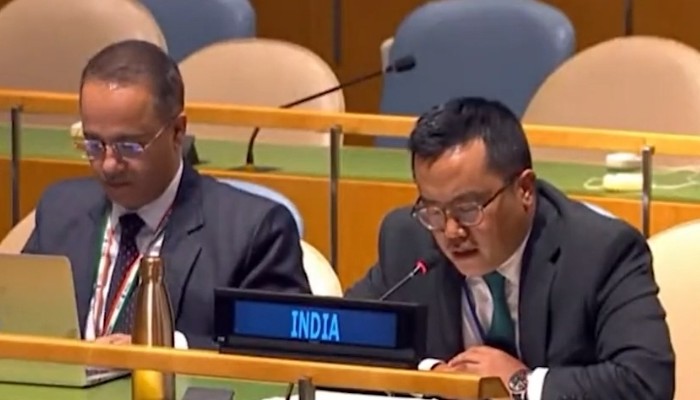Presenting a biased and highly selective article against India, CNN said India’s words are though anti-war, but New Delhi’s actions are propping up Putin’s regime
Point:
CNN said rather than cutting economic ties with the Kremlin, India has undermined Western sanctions by increasing its purchases of Russian oil, coal and fertilizer—giving Putin a vital financial lifeline.
Counterpoint:
On the contrary, the same Western countries which imposed sanctions on Russia after the invasion of Ukraine, are providing financial wherewithal to Moscow to sustain its day today activities. Why is desperation in Western countries after Russia’s Gazprom cancelled the resumption of gas flows through the Nord Stream 1 pipeline, citing oil leak in a turbine?
As per Reuters report, European countries were expecting the pipeline to resume flows, as they struggled with surging gas prices. A Wall Street Journal report recently said, “Europe fears a long, cold winter if Russia ends the supply of natural gas” to the continent. Another report by CNBC said the gas crisis is “shaking Europe’s economic prospects.” These reports have been produced by Western media and they are categorically suggesting Europe’s dependence on Russia for energy. Is it not a double standard?
Well, as far as energy needs of India are concerned, New Delhi has been very clear and honest about it. In August, External Affairs Minister S Jaishankar said it is India's moral duty to ensure that its people get oil at a price they can afford. He maintained that in today's situation where every country is trying to get the best deal possible for its citizens, to try to cushion the impact of these high energy prices and India is doing the same.
“We are not doing it in a defensive way. We are being very open and honest about our interests. I have a country which has a per capita income of two thousand dollars. These are not people who can afford higher energy prices. It is my obligation, my moral duty to actually ensure that I get them the best deal,” Jaishankar added.
Point
CNN reports said while New Delhi’s permanent representative to the UN Ruchira Kamboj said India is “deeply disturbed” by the developments in Ukraine, but stopped short of attributing blame and urged an “immediate ceasefire and resolution of the conflict.” This apparent contradiction exemplifies India’s unique position on the war: verbally distancing itself from Russia, while continuing to maintain pivotal ties with Moscow.
Counterpoint:
In 2020, Russian exports to India—other than weaponry—amounted to less than $6 billion and Indian exports to Russia to less than $3 billion. Coal briquettes were at the top of list of Russian exports to India, valued at $923 million, while packaged medicaments were the largest Indian exports to Russia, valued at $444 million. For comparison, in 2020 Russia’s two-way trade with China was just over $100 billion while U.S. two-way trade with India in 2020 was $120 billion.
With total Russian investment in India merely around $1.26 billion in 2021, Moscow’s economic footprint in the Indian market can be assessed. In contrast, the US invested approximately $45.45 billion in India in 2021. On the trade front, as per the US Census Bureau, India-US bilateral trade in goods stood at $113.391 billion from January to December 2021. In the first five months of this year alone, the two-way trade between the two countries has touched $55.57 billion. One can see where lies any kind of contradiction in India’s external engagement with Russia or the US. Ground reality is India is closer to the US--on economic, defence, or strategic front than Russia. Then CNN itself accepts that “New Delhi’s ties with the West have been growing ever closer since Modi’s election in 2014.”











 Contact Us
Contact Us
 Subscribe
Subscribe
 News Letter
News Letter
 Instagram
Instagram Youtube
Youtube